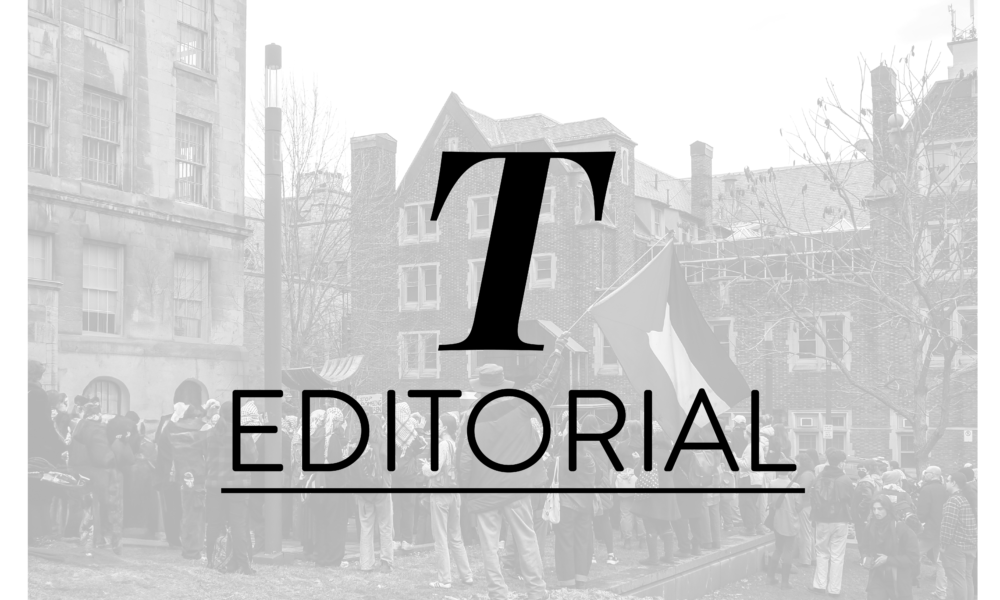//Content warning: Medical abuse, racial and colonial violence//
After decades of institutional negligence, a new class-action lawsuit presents McGill with the opportunity to formally address its role in the human torture experiments conducted through the CIA-funded MKUltra program. Given this opening for reparative action, McGill must reconcile its historic and ongoing violence towards the Indigenous communities whose children were disproportionately represented as victims of the program.
Dr. Donald Ewen Cameron designed and led the MKUltra experiments at McGill University. Though allegedly aimed at addressing schizophrenia, these experiments were funded by the CIA with motives of ‘mind control’ through inhumane human “depatterning” procedures—including the erasure of memory through extreme high-voltage shocks, hallucinogenic drugs, sensory deprivation, and sedatives.
In July, Quebec Superior Court Judge Dominique Poulin authorized a class-action lawsuit against Royal Victoria Hospital, McGill University, and the federal government for their enablement of these unethical human psychological experiments, administered at McGill’s Allan Memorial Institute between 1948 and 1964. The plaintiffs are demanding compensatory damages for all patients of the experiments, as well as their family members and dependants.
This lawsuit marks the first major action within the Canadian judicial system to condemn the MKUltra program while simultaneously holding the institutions who oversaw the program directly accountable for comprehensive financial reparations. In the 1980s, 300 survivors filed for compensation from the Canadian government, yet only nine received financial reparation; the CIA maintained that its actions were appropriate at the time. Of the 300 survivors, 250 were denied compensation altogether due to failure to produce the required medical documents—many of which were destroyed by the CIA in the 1970s.
A large number of the MKUltra victims were Indigenous children taken from residential schools, many of whose bodies were never recovered. In May, the Kanien’kehá:ka Kahnistensera (Mohawk Mothers) alleged evidence of potential human remains from these experiments at the Royal Victoria Hospital, where McGill’s $870-million CAD New Vic Project renovation is underway. This latest report uncovers a third type of evidence of human remains detected by remote sensing technologies during the Mohawk Mothers’ years-long legal battle with McGill. The findings reinforce the Mohawk Mothers’ rightful and scientifically-founded authority in determining the proper approach to investigations at the New Vic site.
McGill, however, has not only been dismissive of the Mohawk Mothers’ demands and evidence of human remains, but has also failed to formally acknowledge the central role the university played in orchestrating the MKUltra program. In fact, the McGill University Health Centre (MUHC) claims that Dr. Cameron worked in an “independent manner,” asserting that the hospital was not his legal employer, despite Dr. Cameron being the acting chairman of the McGill psychiatry department while conducting the MKUltra experiments in the university’s facilities. The Canadian government has been similarly negligent of its role in the human torture experiments—dismissing lawsuits and calling survivors’ claims of abuse ‘unfounded’—despite providing half a million dollars in funding to the program, equivalent to $4 million CAD today.
McGill’s institutional disregard for its violent colonial past is epitomized by its relentless prioritization of the New Vic Project. Despite facing massive budget cuts and almost $200 million CAD in projected deficits, resulting in hundreds of layoffs and a hiring freeze, McGill has maintained that the New Vic Project remains a “priority.” As the Mohawk Mothers demand the most fundamental rights to investigate their land, McGill continues to prioritize its settler colonial agenda while destroying and building over the site of torture at McGill’s hand.
This new class-action lawsuit plays the crucial role not only of demanding formal justice for all victims of the MKUltra experiments, but also of rejecting the idea that the program was an isolated abuse of the past. Instead, it centres justice for the victims and survivors of the program as a pressing issue of //today//.
As an institution, McGill cannot continue to give lip service to reconciliation while proceeding with construction atop alleged unmarked Indigenous graves, dismissing the Mohawk Mothers, and denying its own essential role in the MKUltra experiments. It must commit to the investigation of potential remains on the New Vic site and make a formal public acknowledgement of—and apology for—its role in the experiments.
McGill professors, as individuals with immense intellectual influence, must also give a platform to education on McGill’s colonial legacy on Tiohtià:ke land, and Canada’s abuse of First Nations’ unceded territories. The unconscionable abuses of MKUltra cannot be marginal or absent in any lecture hall at the university which facilitated it, and neither can the past and ongoing battles of Indigenous communities like the Mohawk Mothers—battles given sparse and often antagonistic coverage in the media.
Finally, as students, it is our responsibility to educate ourselves and each other about the horrific abuses that occurred at the university in which we are all enrolled, as well as the continuing history of the land we walk on.







